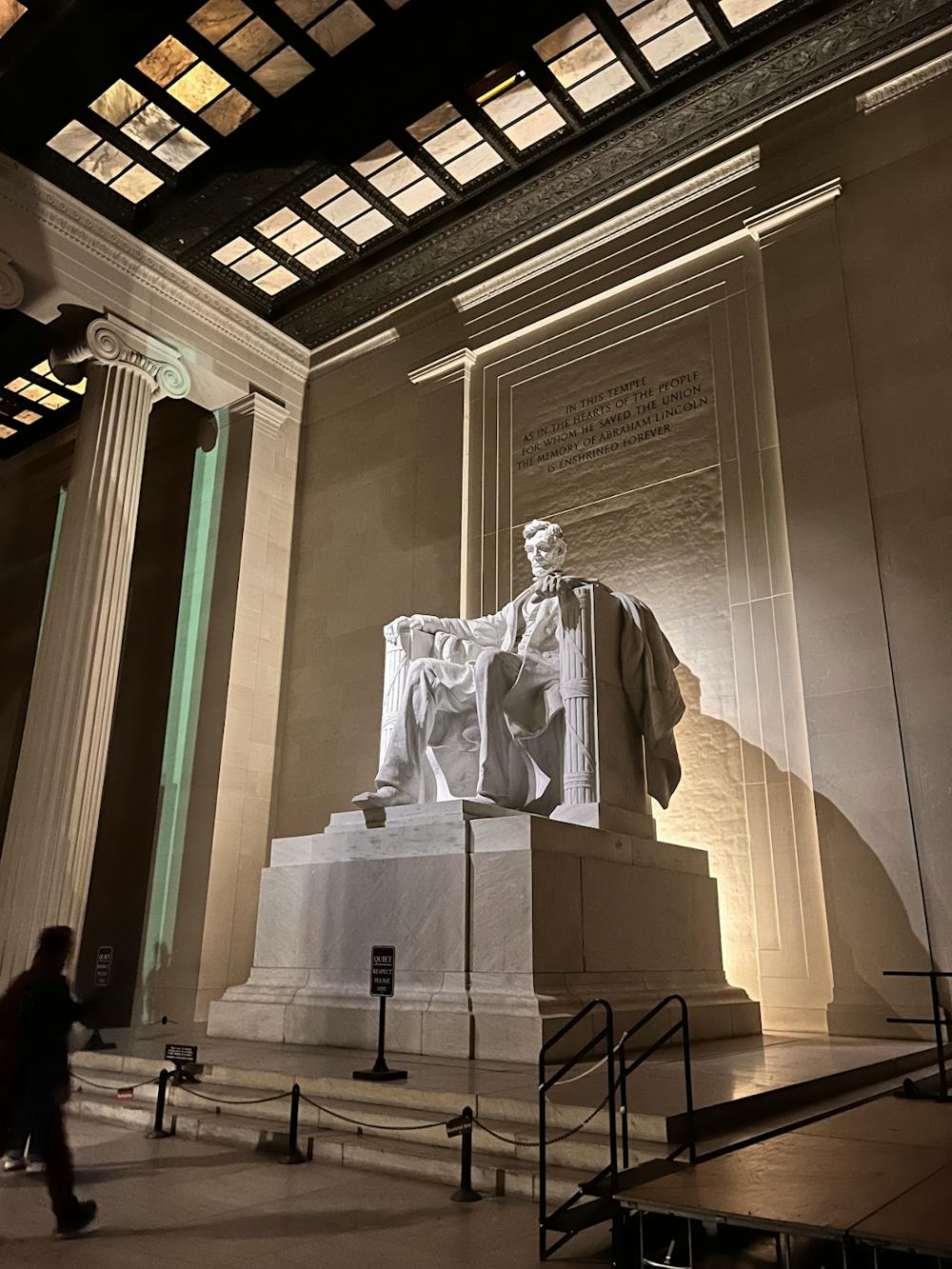"How was study abroad?" It’s the first question everyone asks when you return to Middlebury's campus after studying away for a semester. When my friends describe their semesters in Chile, Germany or Japan, their eyes light up with stories of cultural and language immersion. When I mention that my hiatus from Middlebury was not in another country, but in Washington, D.C., the response is either a passive "oh, cool" or an enthusiastic "oh, cool!" — reactions as divided as the nation’s politics.
As a political science major, I grew up romanticizing D.C. through the lens of television shows like "The West Wing" and "Madam Secretary." I imagined myself joining the ranks of sharp-suited professionals power-walking between meetings, engaged in witty repartee about policy while crossing the National Mall. The Washington Semester Program (WSP) at American University seemed like my chance to step into this idealized world before graduation. The program promised transferable political science credits, professional internship connections and a taste of D.C life. It felt like the perfect choice: I wouldn't be stuck on a quiet Middlebury campus missing my abroad-bound friends. Instead, I'd be having my own adventure in America’s political capital.
What I discovered wasn't quite the Aaron Sorkin script I'd dreamed up in my rural Vermont dorm room — but oddly enough, reality proved more compelling than fiction. It turns out that the real D.C., with all its imperfections, is far more fascinating than the one I'd imagined. And it was in the complications of this reality that I discovered who I wanted to be.
The program itself was a study in contrasts. While my "International Peace and Security" course delivered the D.C. experience I'd hoped for — site visits to the World Bank, U.S Institute of Peace, and a U.S-North Korea peace talk simulation at the Stimson Center — other classes felt like meandering tours of the city's less-interesting institutions. While these experiences were less structured, they occasionally offered unexpected insights. A guest lecture by disability advocate Betty Siegel, for example, forever changed how I view something as simple as an electric scooter lying on a sidewalk.
The most striking difference between Middlebury and D.C. was the ubiquitous and open nature of political discourse. At Middlebury, political discussions often feel cautious or tentative, with students careful not to disrupt the predominantly liberal consensus. In D.C., politics wasn't just another subject — it was the air people breathed.
My classmates came from across the political spectrum and were eager to debate everything from abortion restrictions to gun rights. By the end of the semester, I found myself missing Middlebury's more tame atmosphere, where not every conversation had to circle back to politics.
My National Press Club internship with Robert Weiner Associates had me co-authoring opinion pieces that were far from the nonpartisan journalism I'd imagined. Though I often felt like I was crafting liberal manifestos, the experience was undeniably productive. I published eight op-eds in national newspapers, drafted press releases and compiled media lists — substantive work compared to the coffee runs my friends endured while interning in congressional offices. Through (respectful) debates with my boss, Bob, I learned that my political leanings are less staunchly liberal and more moderate than I’d thought. Perhaps most valuable of all, my conversations with journalists at the National Press Club helped me realize that journalism isn’t my calling.
Outside the classrooms and offices of D.C., you might spot Japanese and Turkish diplomats walking down Embassy Row together on their way to lunch. Perhaps you’ll have a chance encounter with a congressional representative outside the U.S. Capitol. It felt pretty cool to tell my professor, "Sorry I’m late, there was a presidential motorcade." The city constantly reminded me that I was in the heart of American power while still very much being a college student finding my way.
This constant proximity to power comes with its own social code. People in Washington joke that the longer your job title is, the less important you are. There was a palpable sense of a social hierarchy in a program and city where everyone seems to be doing something important. This can feel either inspiring or exhausting. It often left me missing Middlebury's more authentic social culture, where you're valued for who you are rather than what's on your resume.
I spent weekends exploring the countless museums, discovering vintage flea markets and sampling diverse cuisines from various restaurants. Admittedly, these urban excursions came with a steeper price tag than a dinner at Proctor. I also experienced some uniquely D.C. moments: "monumenting" late at night, giving lost tourists directions to the White House and even attending a Valentine's Day ball at the Italian Embassy where WSP students transformed proper ballroom dancing into something decidedly more collegiate.
So, when people ask about my "study abroad" experience, I'm tempted to say it was "interesting,” a safe and ambiguous word that could mean anything. But the truth is more nuanced. My semester in D.C. wasn't the glossy political drama I'd imagined, but rather a behind-the-scenes look at how our nation's capital actually functions.
I never did master the “walk and talks” I'd seen and admired on television. Instead, I gained something more useful: a heightened understanding of the city's reality complete with its partisan frustrations and unexpected opportunities — and a better sense of my own goals and values.
Ting Cui (she/her) is a Sports Editor.
Ting has previously contributed as a sports writer and spent the past year in Washington, D.C., where she interned at the National Press Club as a policy analyst and politics writer. She also interned as an Editor at Fair Observer this past summer, focusing on stories related to international politics and security.
Ting is majoring in Political Science and minoring in History. She is also competitive figure skater for Team USA and enjoys hiking, thrifting, and consuming copious amounts of coffee.


![Copy of Editorial [Susanna] (3) (1) (2) (1).JPG](https://snworksceo.imgix.net/mbc/11c1e285-1b2c-4ee9-9d20-4a2f24335290.sized-1000x1000.JPG?w=1500&ar=16%3A9&fit=crop&crop=faces&facepad=3&auto=format)

